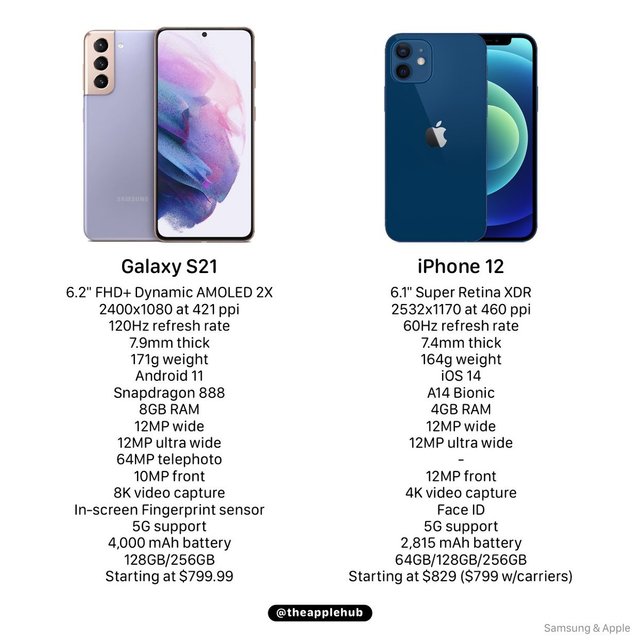A Comparative Analysis of iPhone and Samsung: Choosing the Right Smartphone

In the ever-evolving world of smartphones, two giants consistently dominate the market—Apple's iPhone and Samsung's Galaxy series. These tech behemoths offer cutting-edge features and innovations, each with its own unique strengths. In this article, we will delve into a comparative analysis of iPhone and Samsung smartphones to help you make an informed decision.
Design and Build Quality
Both Apple and Samsung are renowned for their commitment to sleek and sophisticated design. iPhones boast a signature minimalist design with premium materials like glass and aluminum, creating a seamless, premium feel. On the other hand, Samsung Galaxy devices often feature a combination of glass and metal, with some models incorporating curved displays, providing a futuristic and stylish appearance.
Operating System
One of the most significant distinctions between iPhone and Samsung is the operating system. iPhones run on Apple's proprietary iOS, known for its user-friendly interface and seamless integration across Apple devices. Samsung devices, on the other hand, operate on Android, offering a more customizable experience with a plethora of apps available through the Google Play Store.
Performance
Both iPhone and Samsung smartphones are equipped with powerful processors and advanced technologies. iPhones typically feature Apple's custom-designed chips, ensuring optimized performance and efficiency. Samsung, on the other hand, uses a variety of processors, including their in-house Exynos chips and Qualcomm's Snapdragon, delivering robust performance across their lineup.
Camera Technology
Photography enthusiasts often weigh camera capabilities heavily when choosing a smartphone. iPhones are renowned for their consistent and high-quality camera performance. Apple focuses on computational photography, enhancing image processing through software. Samsung, meanwhile, incorporates advanced camera sensors and AI features, providing users with a versatile photography experience.
Ecosystem and Integration
One of Apple's key strengths lies in its ecosystem, where iPhones seamlessly integrate with other Apple devices such as MacBooks, iPads, Apple Watches, and AirPods. This interconnectedness enhances user experience, making tasks like sharing files and answering calls across devices effortless. Samsung, while offering some cross-device functionality, may not achieve the same level of integration as Apple.
Customization and Flexibility
Android, the operating system used by Samsung, is known for its high level of customization. Samsung users can personalize their devices extensively, from home screen layouts to widgets and themes. iPhones, while offering some customization options, are generally more restrictive, aligning with Apple's design philosophy of simplicity and uniformity.
Price Range
In terms of pricing, Samsung often provides a broader range of options, catering to various budget segments. iPhones, while maintaining a premium image, can be more expensive. Samsung's diverse lineup ensures that consumers can find a device that meets both their specifications and budget constraints.
Choosing between an iPhone and a Samsung smartphone ultimately comes down to personal preferences and priorities. If you prioritize a tightly integrated ecosystem, a polished user experience, and a consistent design, an iPhone may be the ideal choice. On the other hand, if customization, a variety of device options, and the flexibility of the Android operating system are important to you, a Samsung Galaxy device might be the better fit. Regardless of your choice, both Apple and Samsung continue to push the boundaries of innovation, ensuring that consumers have access to cutting-edge technology in the palm of their hands.